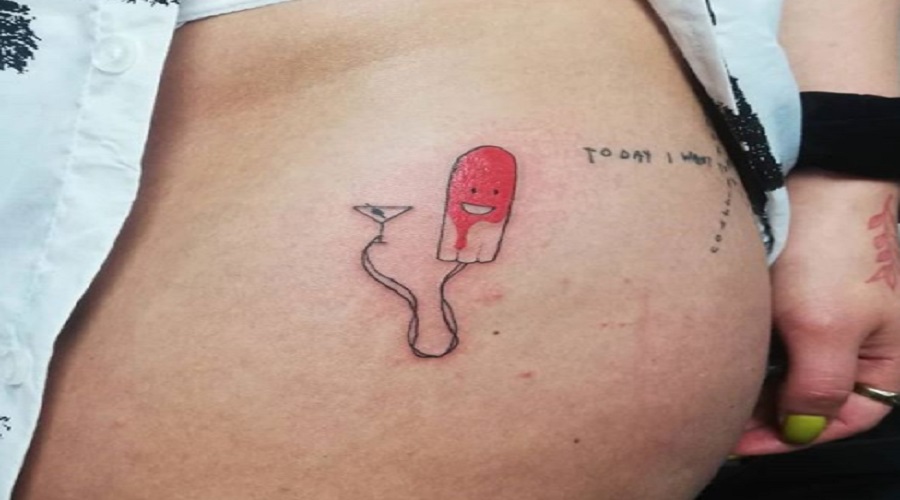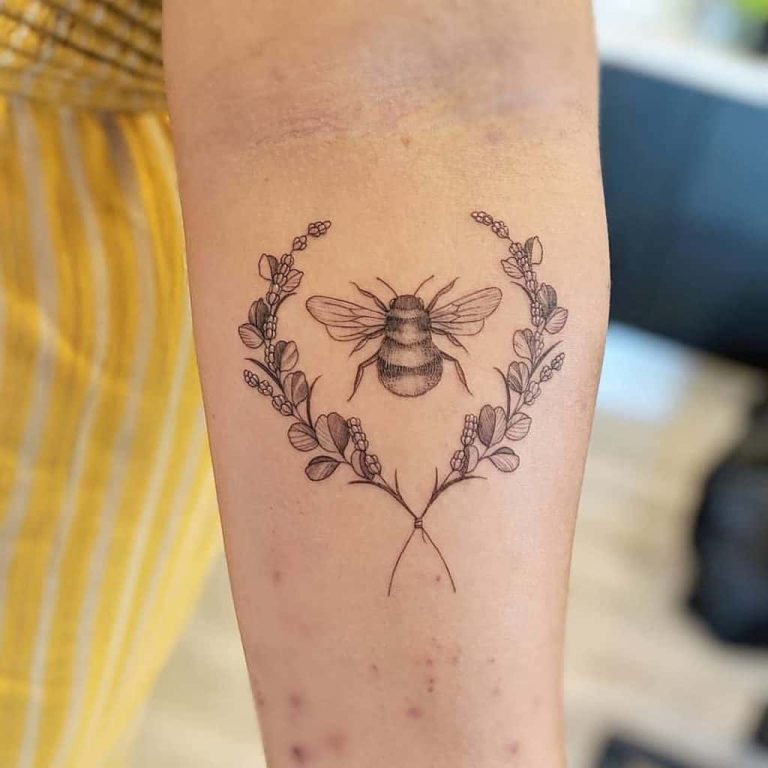Last Updated on January 1, 2025 by Sheila R. Wright
Yes, you can get a tattoo while taking blood thinners. There are some things to keep in mind, however. First, make sure to consult with your doctor before getting a tattoo.
Second, be aware that it may take longer for the tattoo to heal and that you may bleed more during the tattooing process. Third, make sure to choose a reputable and clean tattoo shop. Finally, follow all aftercare instructions carefully.
- Check with your doctor to see if it is safe for you to get a tattoo while you are taking blood thinners
- Find a reputable tattoo artist who has experience in working with people on blood thinners
- Make sure the tattoo shop is clean and sterile, and that all of the equipment is properly sterilized
- Discuss your medical history with the tattoo artist, and let them know that you are taking blood thinners
- Follow all aftercare instructions given by the tattoo artist, and make sure to keep your wound clean and dry to avoid infection

Credit: www.pinupsandneedles.com
What Can You Not Do While on Blood Thinners?
If you are taking blood thinners, there are certain things you should avoid doing to prevent excessive bleeding. Here is a list of things to avoid while on blood thinners:
1. Avoid drinking alcohol.
Drinking alcohol can increase the risk of bleeding.
2. Avoid taking over-the-counter medications without first talking to your doctor. Some over-the-counter medications, such as ibuprofen and aspirin, can increase the risk of bleeding.
3. Avoid activities that could cause injury or trauma, such as contact sports or dangerous hobbies. Even minor cuts or bruises can lead to excessive bleeding when on blood thinners.
4. Avoid surgery or dental procedures if possible.
If you need to have surgery or a dental procedure, be sure to tell your doctor that you are on blood thinners so they can take precautions to minimize the risk of excessive bleeding during and after the procedure.
What Medications Affect Tattoos?
There are a few medications that can affect tattoos, including:
-Corticosteroids (such as prednisone) can thin the skin and cause fading.
-Anti-inflammatory medications (such as ibuprofen) can also cause fading.
-Some antibiotics (such as tetracycline) can cause discoloration.
-Some acne medications (such as Retin-A) can also cause discoloration.
If you are taking any of these medications, it’s important to talk to your tattoo artist before getting inked.
They may recommend waiting until you are off the medication or choosing a different location for your tattoo.
Can You Get a Tattoo Taking Eliquis?
There is no definitive answer to this question as it depends on several factors. Eliquis is an anticoagulant medication that is used to prevent blood clots from forming. This medication can increase the risk of bleeding, which means that there is a potential for increased bleeding when getting a tattoo.
It is important to talk to your doctor before getting a tattoo if you are taking eliquis or any other anticoagulant medication.
Can You Get a Tattoo While on Xarelto?
If you are considering getting a tattoo while taking the blood thinner Xarelto, it is important to speak with your doctor first. There are potential risks associated with getting a tattoo when taking this medication, and your doctor will be able to advise you on whether or not it is safe for you to do so.
There have been reports of people developing serious skin reactions after getting tattoos while taking Xarelto.
These reactions can range from mild to severe, and in some cases, may even require hospitalization. In most cases, these reactions occur within days or weeks of getting the tattoo.
If you do decide to get a tattoo while taking Xarelto, it is important to make sure that the tattoo artist uses sterile needles and clean equipment.
The risk of infection is higher when someone has an open wound (like a fresh tattoo), and if they are taking a blood thinner that prevents clotting. Be sure to let your tattoo artist know that you are taking Xarelto before starting the procedure.
It is also important to watch for any signs of skin reaction after getting the tattoo.
If you develop any redness, swelling, or other irritation at the site of the tattoo, be sure to contact your doctor right away.
HOW I GOT A TATTOO ON BLOOD THINNERS
How Long After I Stop Taking Blood Thinners Can I Get a Tattoo
If you’re considering getting a tattoo, you may be wondering about the safety of doing so while taking blood thinners. Can you get a tattoo while taking blood thinners? And if so, how long after stopping blood thinners can you get a tattoo?
The short answer is yes, it is generally safe to get a tattoo while taking blood thinners. However, there are a few things to keep in mind. First, be sure to consult with your doctor before making any decisions.
They will be able to give you the best advice for your individual situation.
Second, if you do decide to get a tattoo while taking blood thinners, be sure to work with a reputable artist who uses sterile equipment and takes proper precautions. This will help minimize the risk of infection.
Finally, remember that it’s important to wait at least 6 weeks after stopping blood thinners before getting a tattoo. This will allow your body sufficient time to heal and reduce the risk of complications.
Can You Get a Small Tattoo While on Blood Thinners
If you are on blood thinners, you may be wondering if you can get a small tattoo. The short answer is yes, but there are some things you need to consider before doing so.
Before getting any tattoo, it’s important to consult with your doctor to make sure it’s safe for you.
This is especially true if you are on blood thinners, as they can increase your risk of bleeding and bruising.
Your doctor will likely recommend that you wait at least 3 months after starting blood thinners before getting a tattoo. This is to ensure that your body has adjusted to the medication and that your clotting time has returned to normal.
When getting a tattoo while on blood thinners, it’s important to choose a reputable artist who uses sterile equipment and takes precautions to avoid infection. You should also expect your tattoo to take longer than usual to heal due to the increased risk of bleeding and bruising.
If you have any concerns or questions about getting a tattoo while on blood thinners, be sure to speak with your doctor first.
They will be able to give you the best advice for ensuring a safe and healthy experience.
Medical Reasons You Can’T Get a Tattoo
There are a few medical reasons that might prevent you from getting a tattoo. If you have any allergies to metals, inks, or other substances used in tattoos, then you’ll obviously need to avoid them. And if you have any skin conditions like psoriasis or eczema, it’s best to steer clear of tattoos altogether since they can irritate the skin and make the condition worse.
Finally, if you have a blood disorder like hemophilia, getting a tattoo could be very dangerous since your blood doesn’t clot properly and you could bleed excessively.
Stopping Blood Thinners before Tattoo
If you’re considering getting a tattoo, you may be wondering if it’s safe to stop taking your blood thinners first. The short answer is that it’s probably okay to do so, but you should check with your doctor first.
There are two main types of blood thinners: anticoagulants and antiplatelet drugs.
Anticoagulants, such as warfarin (Coumadin), help prevent your blood from clotting. Antiplatelet drugs, such as aspirin, prevent platelets from clumping together and forming clots.
Both types of drugs can increase your risk of bleeding and bruising, which is why it’s important to check with your doctor before stopping them.
If you have a history of bleeding or clotting disorders, or if you’re scheduled for surgery soon, your doctor may advise against stopping your blood thinners.
In general, though, it’s probably safe to stop taking anticoagulants for a few days before getting a tattoo. This will allow the bleeding to subside and reduce the risk of infection.
If you’re taking an antiplatelet drug like aspirin, you may need to continue taking it until the day of your tattoo appointment. Again, check with your doctor beforehand just to be sure.
Conclusion
If you’re on blood thinners and considering a tattoo, you may be wondering if it’s safe. The short answer is yes, you can get a tattoo while taking blood thinners. However, there are a few things you should take into consideration before getting inked.
For starters, it’s important to understand how blood thinners work. Blood thinners prevent clotting by making it harder for your blood to clot. This means that if you do get a tattoo while taking blood thinners, you may bleed more than usual and the tattoo may take longer to heal.
Additionally, because blood thinners make it difficult for your body to form clots, they also make it more difficult for your body to fight off infection. This means that if you do get a tattoo while taking bloodthinners, you’ll need to be extra vigilant about keeping the area clean and protecting it from bacteria.
Overall, getting a tattoo while taking blood thinners is possible but there are some risks involved.
Be sure to talk to your doctor or Tattoo Artist before getting inked to ensure that it’s safe for you and that you understand all of the potential risks involved.




